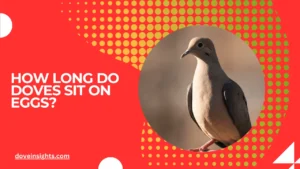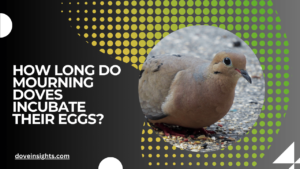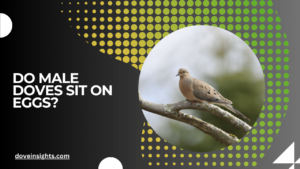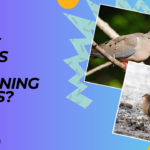The soft cooing of a dove is a gentle reminder of nature’s beauty and resilience. Among the many fascinating aspects of these birds’ lives is their egg incubation process, a journey that showcases their unwavering dedication to raising their young.
If you’ve ever come across a dove nest or heard their soothing calls in your backyard, you may wonder: how long does it take for dove eggs to hatch?
The hatching process is more than just a biological event—it’s a vital part of the dove’s lifecycle that ensures their species continues to thrive. Understanding this process can help bird enthusiasts and nature lovers alike appreciate the delicate balance of care and patience that parent doves exhibit during this critical time.
In this article, we’ll explore the timeline of dove egg hatching, from the moment the eggs are laid to the day they hatch. We’ll also delve into the factors that can influence this process, the role of parental care, and how we can support dove families in our environments.
Whether you’re a birdwatcher, a curious observer, or someone seeking to connect more deeply with nature, this guide offers insights that are as informative as they are inspiring.
Contents
- 1 The Basics of Dove Egg Incubation
- 2 Factors Affecting Egg Hatching Duration
- 3 Parental Care During Incubation
- 4 What Happens When Dove Eggs Hatch?
- 5 How to Support Dove Families in Your Area
- 6 Conclusion
- 7 FAQ’s
- 7.0.1 How long does it take for dove eggs to hatch?
- 7.0.2 Do both parent doves incubate the eggs?
- 7.0.3 What temperature is ideal for dove egg incubation?
- 7.0.4 What happens if a dove abandons its nest?
- 7.0.5 Can dove eggs survive without the parents for a few hours?
- 7.0.6 Why do doves coo near their nests?
The Basics of Dove Egg Incubation
Doves are known for their minimalistic nesting habits. Their nests are often made from twigs, grass, and other lightweight materials, providing a stable yet simple home for their eggs. On average, a dove lays two eggs per clutch, a number that reflects their natural reproductive strategy.
Once the eggs are laid, the incubation period begins. Both parents share responsibilities, with the male incubating during the day and the female taking over at night.
This cooperative effort ensures the eggs are kept at a consistent temperature, typically around 100°F (37.7°C). The average incubation period for dove eggs is 14 days, though this can vary slightly based on environmental conditions and the species of dove.
The incubation stage is a delicate time, as the eggs are vulnerable to temperature fluctuations, predators, and disturbances.
The parents’ commitment to protecting and warming the eggs highlights the intrinsic value of teamwork in the animal kingdom.
Factors Affecting Egg Hatching Duration
Several factors can influence the hatching timeline for dove eggs. One of the most significant is temperature—cold weather can extend the incubation period, while warm, stable climates may shorten it slightly.
Predators and human interference also play a role.
If a predator threatens the nest or if human activities cause disturbances, the parents may temporarily abandon the eggs, delaying their development. Similarly, the location of the nest, such as its exposure to sunlight or shelter, can affect the eggs’ ability to maintain optimal conditions for hatching.
Interestingly, some differences exist among dove species. For instance, Mourning Doves and Eurasian Collared Doves may have slight variations in their incubation periods due to their unique adaptations and habitats.
Parental Care During Incubation
Parental care is crucial during the egg incubation stage. Doves are monogamous birds, and their strong pair bonds allow them to work seamlessly as a team. While one parent incubates, the other forages for food, ensuring that both maintain the strength needed for their demanding roles.
Their commitment extends beyond just warming the eggs. Parent doves are vigilant against predators, often employing distraction displays to lure threats away from the nest. This selfless behavior underscores the importance of parental investment in ensuring the survival of their offspring.
The gentle yet persistent cooing sounds you might hear near a dove nest serve as a reassurance call between the parents, signaling safety and coordination.
Such behaviors illustrate how deeply connected these birds are during the incubation phase.
What Happens When Dove Eggs Hatch?
When the incubation period ends, the eggs finally hatch, revealing tiny, featherless chicks. These hatchlings, known as squabs, are completely dependent on their parents for food, warmth, and protection.
Parents feed their newly hatched chicks a nutrient-dense substance called crop milk, produced in their crops. This unique adaptation is rich in fats and proteins, providing the squabs with the essential nutrients they need to grow rapidly.
Hatching also marks the start of a new phase of vigilance for the parents, as the young birds remain highly vulnerable to predators. The nest continues to serve as a sanctuary, shielding the chicks as they begin their journey of growth and development.
How to Support Dove Families in Your Area
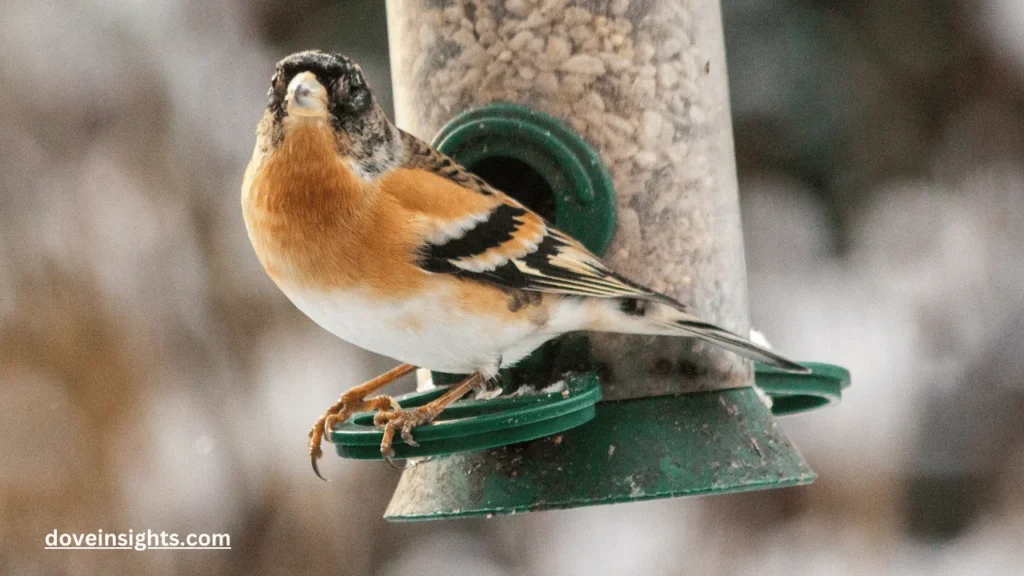
If you’re fortunate enough to have doves nesting nearby, there are ways you can help support their hatching process without causing harm. Providing a quiet and disturbance-free environment is one of the best ways to ensure the safety of dove eggs.
Offering a consistent food supply, such as birdseed, can help parent doves conserve energy for their demanding roles. Creating a dove-friendly habitat with shrubs and trees for nesting and shelter can also encourage these birds to thrive in your area.
Avoid interfering directly with nests, as human contact can cause unnecessary stress or abandonment.
If you encounter a nest in an unsafe location, consult with a local wildlife expert to determine the best course of action. Supporting doves in this way fosters a harmonious coexistence with these gentle creatures.
Conclusion
Recap Main Points: Dove eggs typically hatch in about 14 days, with both parents playing a critical role in ensuring the eggs’ survival.
Factors like temperature, predation risks, and human interference can influence the hatching timeline, while the period after hatching involves intensive care and feeding. By understanding this process, we can better appreciate the remarkable dedication of doves to raising their young.
Final Thoughts: The life cycle of doves, from egg to fledgling, is a testament to the delicate balance of nature. By creating supportive environments and reducing disturbances, we can play a small yet significant role in helping these beautiful birds thrive.
As we observe their lifecycle, we’re reminded of the importance of patience, care, and harmony in nurturing life—a lesson that transcends species and resonates deeply with us all.
FAQ’s
How long does it take for dove eggs to hatch?
Dove eggs typically hatch in about 14 days, depending on environmental factors and species.
Do both parent doves incubate the eggs?
Yes, both parents share incubation duties, with males taking the day shift and females covering the night.
What temperature is ideal for dove egg incubation?
Dove eggs require a consistent temperature of around 100°F (37.7°C) to develop properly.
What happens if a dove abandons its nest?
Abandonment can occur due to predators, human interference, or environmental stress. In such cases, consult a wildlife rehabilitator for guidance.
Can dove eggs survive without the parents for a few hours?
Dove eggs can tolerate short periods without incubation, but prolonged exposure to cold temperatures may harm their development.
Why do doves coo near their nests?
Doves coo as a form of communication between the parents, signaling safety or coordination.


